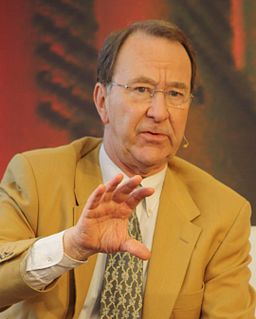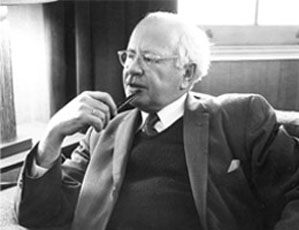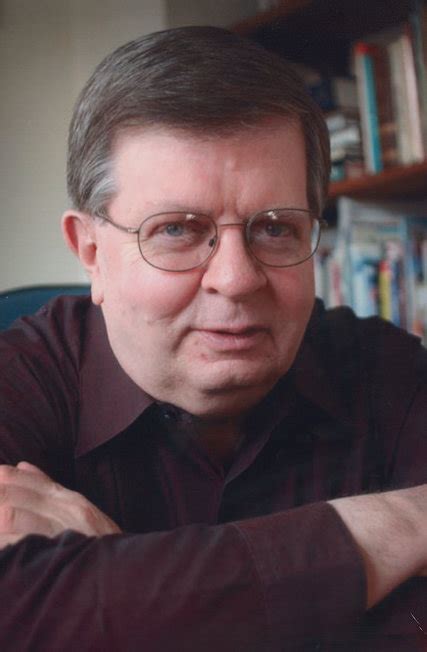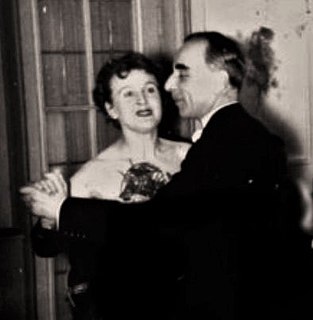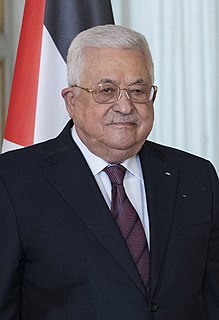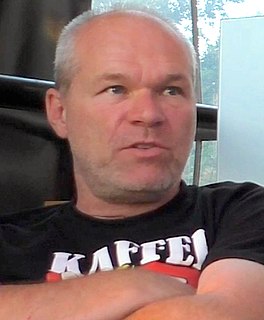A Quote by Ian Kershaw
Within the Nazi Party, the beginnings of a personality cult around Hitler go back to the year before the [Munich] putsch... Outside these small groups of fanatical Bavarian Nazis, Hitler's image and reputation at this time - so far as the wider German public took any notice of him at all - was little more than that of a vulgar demagogue, capable of drumming up passionate opposition to the government among the Munich mob, but of little else.
Quote Topics
Among
Any
Around
Back
Before
Beginnings
Capable
Cult
Drumming
Else
Far
German
Go
Government
Groups
Him
Image
Image And Reputation
Little
Mob
More
Munich
Nazi
Nazi Party
Notice
Opposition
Outside
Party
Passionate
Personality
Public
Reputation
Small
Small Group
Small Groups
Than
Time
Took
Up
Vulgar
Wider
Within
Year
Related Quotes
A 'Hitler myth' was cultivated which built on people's desire for strong leadership, and presented Hitler as an almost God-like figure. Hitler's image was laboured over in a manner not dissimilar to that of pop stars today. What he wore, what he said, what postures he adopted during speeches were all worked out carefully... Many people began to separate Hitler from the Nazi Party, enabling Hitler's popularity to remain high whilst the popularity of the Nazi Party fell.
You're talking to a modern, nice, affable German person and they're saying to you something like 'You know, vell, it's a critical time now for Germany within Europe, also globally, economically ve are pretty good, ve have been better. But ve are very vibrant in the theater and arts...' and all the time you'll be listening to this, you're thinking Mmm, yeah, mmm... Hitler, Hitler, Hitler, Hitler, Hitler.
Chamberlain's stubborn, fanatical insistence on giving Hitler what he wanted, his trips to Berchtesgaden and Godesberg and finally the fateful journey to Munich rescued Hitler from his limb and strengthened his position in Europe, in Germany, in the Army, beyond anything that could have been imagined a few weeks before. It also added immeasurably to the power of the Third Reich vis-a-vis the Western democracies and the Soviet Union.
All Germany was in turmoil. Revolutionaries seized power in the cities of Munich, Hanover and Cologne. One regional German government after another was toppled by workers' and soldiers' councils. Adolf Hitler, recuperating in a military hospital, reacted violently to this news. "It became impossible for me to sit still one minute more," he wrote in Mein Kampf.
The second type you have at these parades seems to be the people who want to mislabel Hitler. Everybody in the world is Hitler. Bush is Hitler, Ashcroft is Hitler, Rumsfeld is Hitler. The only guy who isn't Hitler is the foreign guy with a mustache dropping people who disagree with him into the wood chipper. He's not Hitler.
When [Adolf] Hitler was in Munich, their place [with Eva Braun] to meet was always his apartment. Before that, it was at Hoffmann's place. They had their routine there, Hitler had his security there, it was a place he was used to. He never got used to the apartment he got us on the Widenmayerstraße .
The Nazi Party was, in the early 1920s, but one among many nationalist and volkisch radical political groups. It was catapulted to prominence with the onset of economic recession in the late 1920s... The Nazis owed their spectacular to a combination of two discrete sets of factors: first, their distinctive organisation and strategy; and secondly, the wider socio-economic conditions which created climates of opinion and sets of grievances on which the Nazis could prey.
Hitler did not have Mussolini's revolutionary socialist background... Nevertheless, he shared the socialist hatred and contempt for the 'bourgeoisie' and 'capitalism' and exploited for his purposes the powerful socialist traditions of Germany. The adjectives 'socialist' and 'worker' in the official name of Hitler's party ('The Nationalist-Socialist German Workers' Party') had not merely propagandistic value... On one occasion, in the midst of World War II, Hitler even declared that 'basically National Socialism and Marxism are the same.'
You don't need any courage today in Germany to make a movie about the Nazi time. You get all the subsidies, you get the TV stations, you get the good reviews. But you need courage to kick in the balls all the people that are still hiding under the blanket, and to say, "Oh, Adolf Hitler was maybe not so bad." And with my little Nazi jokes in Postal, I offended the Germans in a harsh time.
My faceless neighbor spoke up: “Don’t be deluded. Hitler has made it clear that he will annihilate all Jews before the clock strikes twelve.” I exploded: “What do you care what he said? Would you want us to consider him a prophet? His cold eyes stared at me. At last he said, wearily: “I have more faith in Hitler than in anyone else. He alone has kept his promises, all his promises, to the Jewish people.
